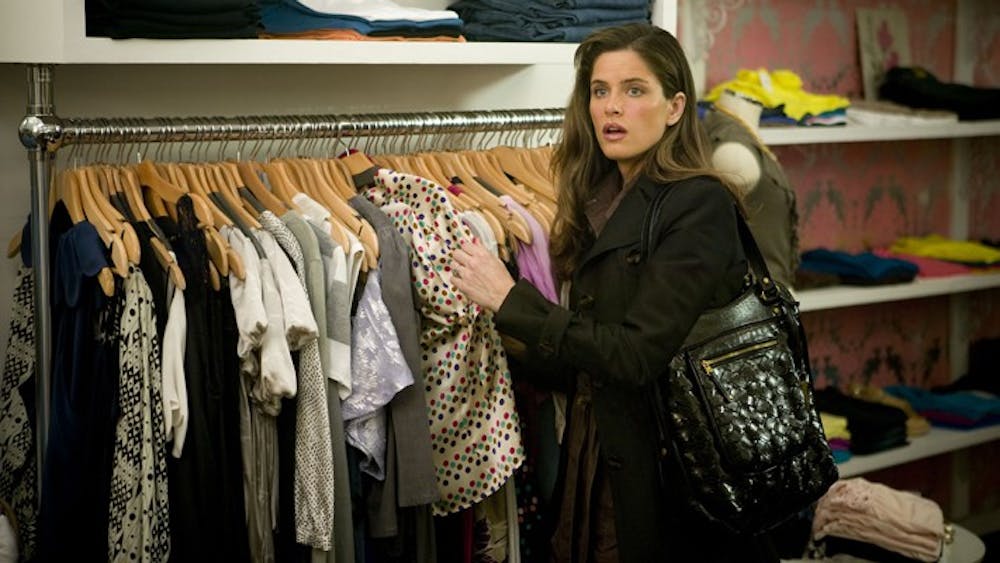"Please Give:" B+
Nancy Meyers and Nora Ephron are too often cited as the only female directors making films about contemporary women’s issues. Both directors are consistently successful at the box office, yet their films celebrate wildly varying degrees of success. Although her films typically fly under the Meyers-Ephron radar, it is director Nicole Holofcener who is authoring better movies about women and tackling more sophisticated themes.
With her latest film, “Please Give,” Holofcener does not waste any time and lays her cards on the table in the first shot. She bravely hurdles the audience into an extended, close-up opening credit sequence of breasts undergoing mammograms. The breasts are portrayed unapologetically, differ in age, color, size and shape and present a very clear sense of honesty from the get-go.
Honesty has always been Holofcener’s strong suit in films, as displayed in her luminous, engaging character studies “Lovely and Amazing” and “Friends with Money.” With “Please Give,” Holofcener returns to a few of her favorite themes, including motherhood, self-esteem and identity and explores the new, grim territories of death and guilt.
Set in modern-day Manhattan, the film follows the privileged Kate (played by the ever-dependable and fantastic Catherine Keener), who has quite a bit on her plate. She is in the thick of a minor existential crisis that leads her to question the ethics behind her trendy furniture store business that purchases pieces from people who have recently lost a relative. After Kate’s teenage daughter asks for $200 for a pair of designer jeans, she starts to detect the stranglehold that materialism and consumerism has on her family, inspiring her to dive head first into a sea of volunteer and philanthropic endeavors to rid her of guilt. Kate finds solace in the confidence of her bitter, aging neighbor’s granddaughter Rebecca (in a lovely, understated turn from Rebecca Hall) who works at the mammogram office in the opening sequence. Rebecca has an equal share on her mind, with her grandmother dying and her sister Mary (played by a very crisply tanned Amanda Peet) showing no interest.
Rebecca and Kate meander through their lives, grappling with their respective guilt, pent-up longings and incriminating secrets, and it’s not a particularly easy thing to watch. Holofcener has a very keen eye for observation, detecting slight, nuanced emotions in very unique ways. Her films do not unfold in particularly structured, plot-point driven schematics but rather through a series of interactions (mostly of the argumental variety), between characters with contrasting perspectives and world views. Undoubtedly the bleakest, most depressing of Holofcener’s films thus far, “Please Give” sporadically suffocates its characters through its incredibly muted tone.
Although Keener and Hall layer their performances with warmth, honesty and wisdom, some of the other performers, namely Oliver Platt (who plays Keener’s husband) and Sarah Steele (who plays their daughter), are incredibly one-dimensional and simply not realized enough to believe — a hindrance for a film that values honesty so highly.
It is the film’s fearless gusto to analyze some of the least glamorous elements of identity that renders it so charming. The feelings the story arouse chart across a vast scale of emotion, leaping from sentimentality and melancholy to terror and remorse. Intelligent and brave, “Please Give” serves as testament to Holofcener’s talent and wisdom, blowing Meyers and Ephron out of the water.
You can reach this staff writer at thescene@theeagleonline.com.





